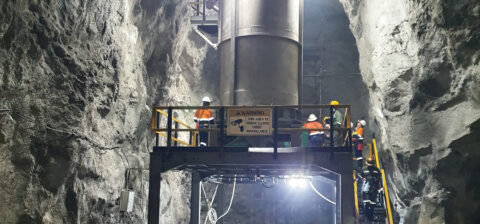BD Manufacturing
Digging Deep
The South African economy has suffered a number of recent setbacks, most notably the economic disruption caused by the COVID-19 pandemic in the first quarter of 2020, and the violence, looting and arson across Gauteng and KwaZulu-Natal in July this year that disrupted exports and rattled investor confidence.
The mining industry has performed well despite these disruptions. In August, SARS reported that the country’s trade surplus – a measure of the balance of trade where exports outweigh imports – had grown to a record R57.7-billion in June. Exports, driven mainly by commodities, expanded by nearly 44 per cent to R166.5-billion compared to the same period a year earlier.
Preliminary indications from SARS are that it gathered R138-billion more in tax revenue for the 2021 financial year to end-March than it had budgeted for, largely because of mining and financial services being stronger than expected.
The mining sector employed nearly 5 000 people more in the first quarter of 2021 compared to the same period in pre-COVID 2019, reaching 459 407 jobs in the industry.
The mining industry is also a leader in private-sector efforts to combat the COVID-19 pandemic, opening on-mine health facilities to vaccinate not only its employees but also their dependants and community members.
Beneath the surface
However, beneath the rosy glow of financial performance buoyed by high global prices for South Africa’s minerals, there are deep concerns around the slow pace of institutional and infrastructure reforms as well as regulatory uncertainty.
Without these reforms there is little hope of addressing the unemployment crisis unfolding in South Africa, with more than 12 million people out of work. This translates to a record 44.4 per cent when the expanded definition of unemployment is used. Essentially, large numbers of school leavers are unlikely to find a job. The government needs to adopt a pro-growth and pro-investment strategy to address the burgeoning unemployment and social crises.
The Minerals Council South Africa (MCSA) has, along with its partners in Business for South Africa, identified several of the most important structural and institutional reforms needed to revitalise investment, job creation and inclusive growth.
The government needs to stabilise the fiscus. Government debt has mushroomed from 24 per cent of GDP in 2008 to 89 per cent in 2021. Key to this strategy would be no longer pouring billions of rands into state-owned enterprises. The state must show intent in cracking down on corruption and wasteful expenditure.
The government must halve crime levels in three years, with an overhaul of the police, justice and security departments, and underlying structures.
The government must expedite the entrance of the private sector through investment and competition into the provision of services in electricity, rail and ports. The government’s opening of 100MW of embedded power generation without a licence is a vital first step in this direction, while talk of opening terminal operations to private partners is another.
Moving commodities
The MCSA and Transnet held a full-day workshop in August to discuss the difficulties the state-owned rail and port company was experiencing in moving bulk commodities like coal, chrome, iron ore and manganese to ports to take advantage of high commodity prices.
The MCSA estimates that so far this year, coal exports are 20 per cent down, translating to a R10-billion loss, while iron ore exports are 7 billion tonnes below target, equating to a loss of R15-billion in the year to date. One of the biggest factors hampering exports is theft and vandalism of Transnet rail infrastructure.
Transnet and the MCSA are exploring areas of cooperation to boost productivity on the export channels and address theft.
The national, provincial and municipal tiers of government, along with a large and expensive civil servant base, need to be addressed and red tape reduced.
Finally, the government must provide regulatory certainty, urgently resolving the question around land expropriation, which is a major deterrent for investors.
Seeking certainty
We are working closely with the Department of Mineral Resources and Energy to bring certainty to the exploration and junior sector of the industry by collaborating on a plan to kick start the search for and development of mineral deposits.
The MCSA is pushing hard for a new online mineral rights management system called a cadastral system, and will continue working closely with the department to replace the dysfunctional Samrad system that has proved a bottleneck in the administration of mining and prospecting rights.
The MCSA will build on the high levels of collaboration and cooperation established with the department during the onset of COVID-19 in 2020, which allowed a safe and orderly return to work for the mining industry ahead of many other industries.






 Sign-up and receive the Business Media MAGS newsletter OR SA Mining newsletter straight to your inbox.
Sign-up and receive the Business Media MAGS newsletter OR SA Mining newsletter straight to your inbox.